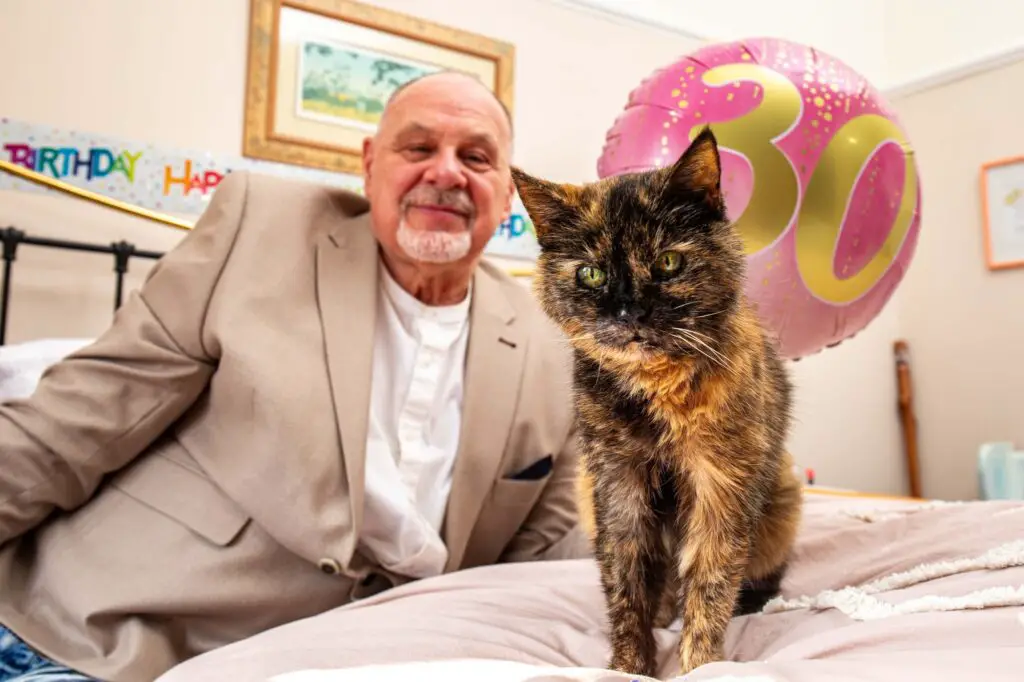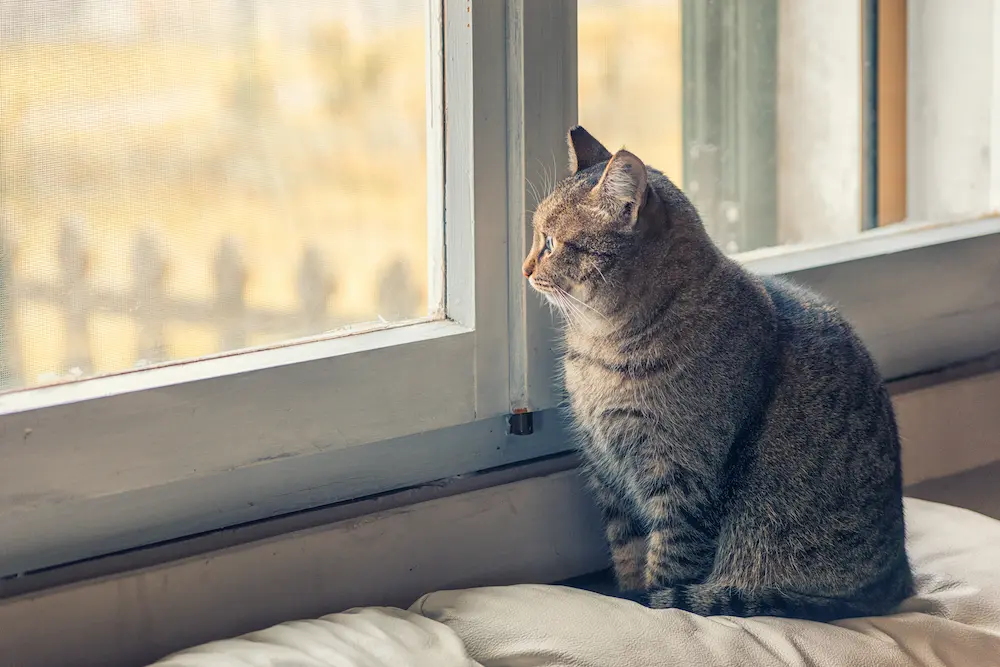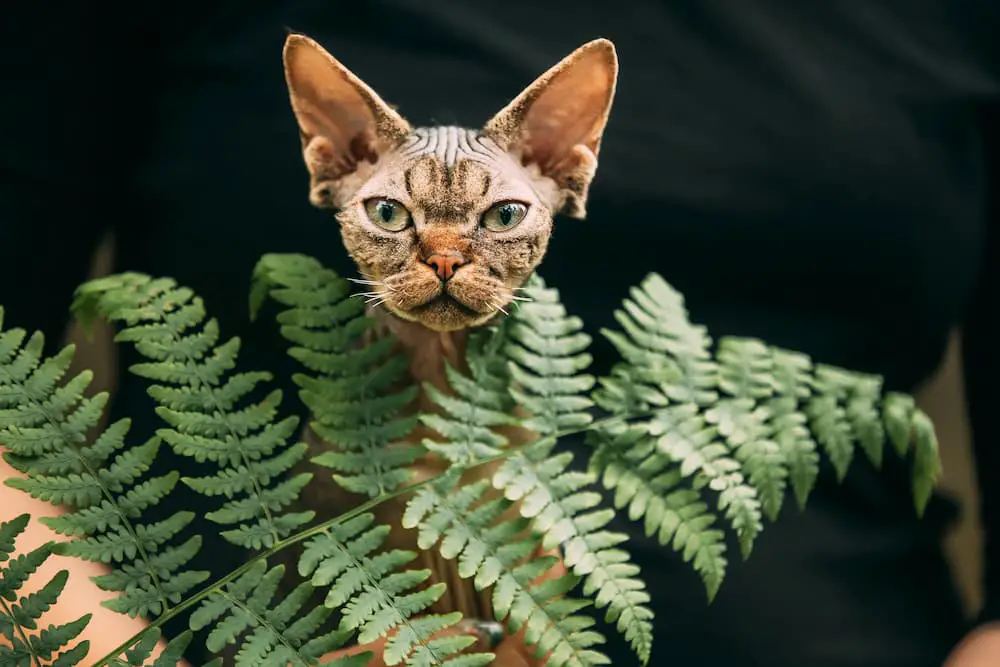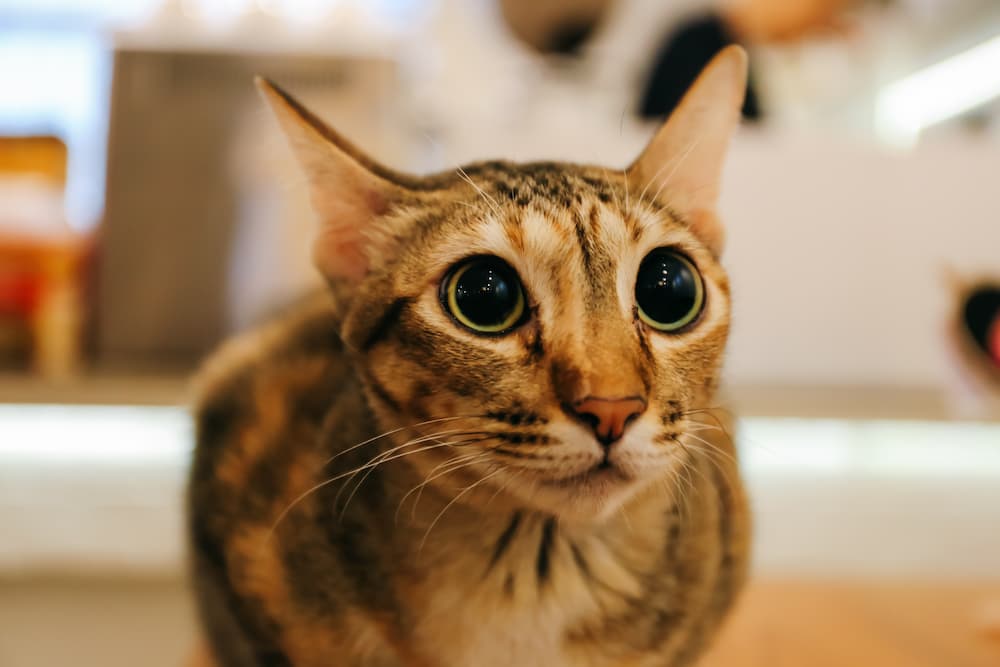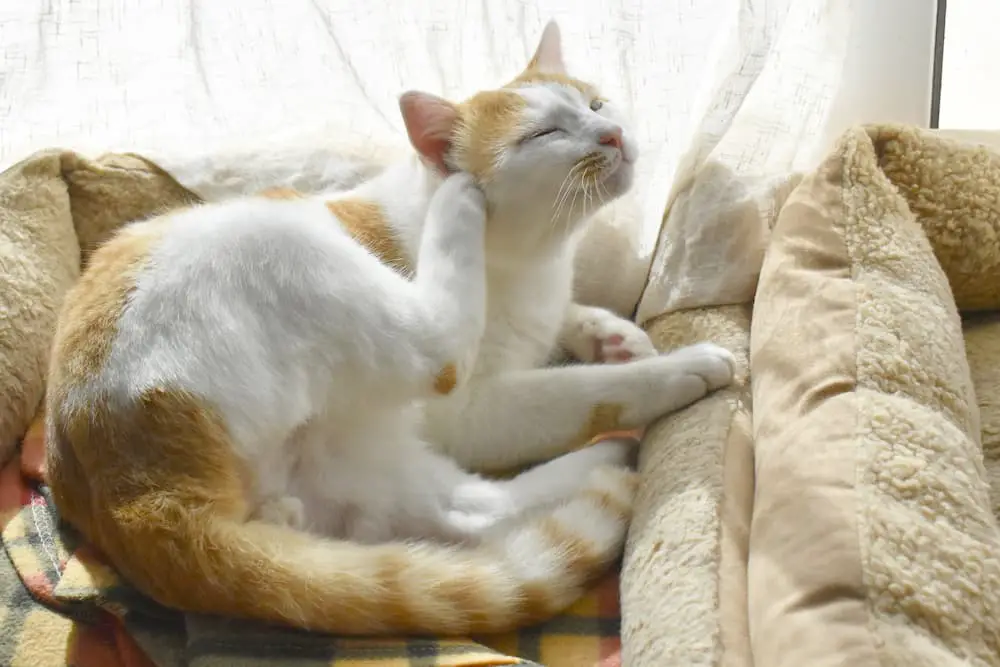Cats aren’t typically as noisy as their canine counterparts, but they can still sometimes be more vocal than we would like. Depending on what is happening, cats can not only meow, but yowl, cry or even seemingly scream.
When your cat persistently meows at night, it can be very frustrating. Not only is your sleep disturbed, but if you don’t understand what is causing the behavior, you feel helpless to change it. So, just what might it be that is causing your beloved feline to become so vocal at night?
Access to the outdoors
If your cat is an indoor cat, then it is imperative that you provide them with sufficient stimuli, attention, and play to override their desire to head outdoors. That said, when young, complete cats (particularly males) reach sexual maturation, their hormones can drive them to pine for access to the outdoors so they can mate. If you intend on keeping them indoors permanently, it may be a good idea to consider desexing them to prevent nighttime pining.
If you are happy for them to venture outside, then providing them with a cat flap/door is the best option to avoid conditioning them to meow at the door whenever they want to leave the house.
Cold
Many cats will meow when they are cold, and this tends to happen more so at night. During the day there is usually sun shining through the window in which they can lie. But temperatures drop at night, and if you don’t want your cat sleeping on the bed (even cat lovers don’t always want this) they can get quite cold in certain climates.
One way to prevent them from getting cold is to keep a heater on in your living room. You can put it on a very low setting to take the chill off and give your cat somewhere to lay down. Another alternative is a heated cat bed which heats up to a cat’s body temperature and can keep them warm and toasty.
Hunger
A hungry cat will not quietly wait until the sun rises to be fed. It’s unlikely that you would forget to feed them completely and then not put two-and-two together, so, providing you have fed them, it may be worth considering whether they are getting enough. Don’t get up in the night to feed them otherwise you will reinforce the behavior. But, during the day, do some research to ensure that your cat is getting sufficient nutrition and food quantities.
If it is hard to always remember to feed your cat, such as can be the case when working around demanding work schedules, think outside the box. There are automatic feeders that you can program to feed your cat at certain times, as well as control the amount that they deliver. Make sure they always have access to fresh, clean water, too, as cats are renowned for not drinking enough water as it is, and a sudden overwhelming thirst could cause nighttime disruptions.

Attention seeking
Cats who are seeking attention at night can try to do so in a variety of ways. They will sometimes climb over you as you sleep and paw at you, they may scratch at the floor or your bedroom door, or they may simply resort to continually meowing – after all, chances are it gets your attention during the day. This behavior is even more common when a cat is particularly playful, curious and active.
It can be really hard to ignore your cat when they are desperate for your attention, regardless of the time. But, so long as they aren’t alerting you to something being genuinely wrong, it’s important to avoid giving them the attention they are seeking. Even responding negatively is still a form of attention that could reinforce the behavior. You may just need to resort to wearing earplugs until you can solve the problem.
Try to shower your cat with plenty of love and affection the next day, and try your best to wear them out with lots of playtime. They may be experiencing some disconnection from you, particularly if you are a very busy person or out alot, so try to find a new balance that has them feeling more content come nightfall.
Stress or pain
If your cat begins meowing at night and it is out of character, it may be a sign that something else is wrong. Any changes in their health that cause pain or discomfort can make them feel anxious or restless and this can be more prevalent at night.
Cats can develop anxiety as a result of stress, too. If you are in any way unsure and the behavioral change is sudden and unlike them, consult with your vet.

Old age
As cats age, they can suffer with cognitive dysfunctions that can cause feelings of confusion and disorientation. While these conditions are not fully understood in felines, your vet can assist with recommending dietary changes and supplements that can assist in supporting their brain function more as they age.
As cats age, they are also prone to health changes. Hyperthyroidism is one condition that is often associated with nighttime meowing. If your cat suddenly starts crying at night along with eating, drinking, and urinating more, it’s a very good idea to have kitty seen by a veterinarian for blood work to rule out hyperthyroidism or some other health issue.
Old age can also bring about deterioration in their senses, such as deafness or eyesight impairments, which can make them meow at night to ask for comfort or help. Consult with a vet if the changes are sudden, otherwise consider providing them with a familiar, smaller space that they can easily navigate and feel comfortable to sleep in, such as a laundry area with a comfy bed and easy-to-use litter box.
Final thoughts
If any behavioral changes occur suddenly, it’s important to consult with a veterinarian. So long as any obvious causes, such as hunger, have been addressed, it’s important to rule out any health concerns. If you are still struggling to find answers and solutions, you could engage a cat behavior specialist to assist you further, so that you and kitty can get back to having a nice, peaceful night.
The Catington Post is reader-supported. That means, if you make a purchase through links on our site, we may earn an affiliate commission. All images and names which are not the property of The Catington Post are the property of their respective owners.

